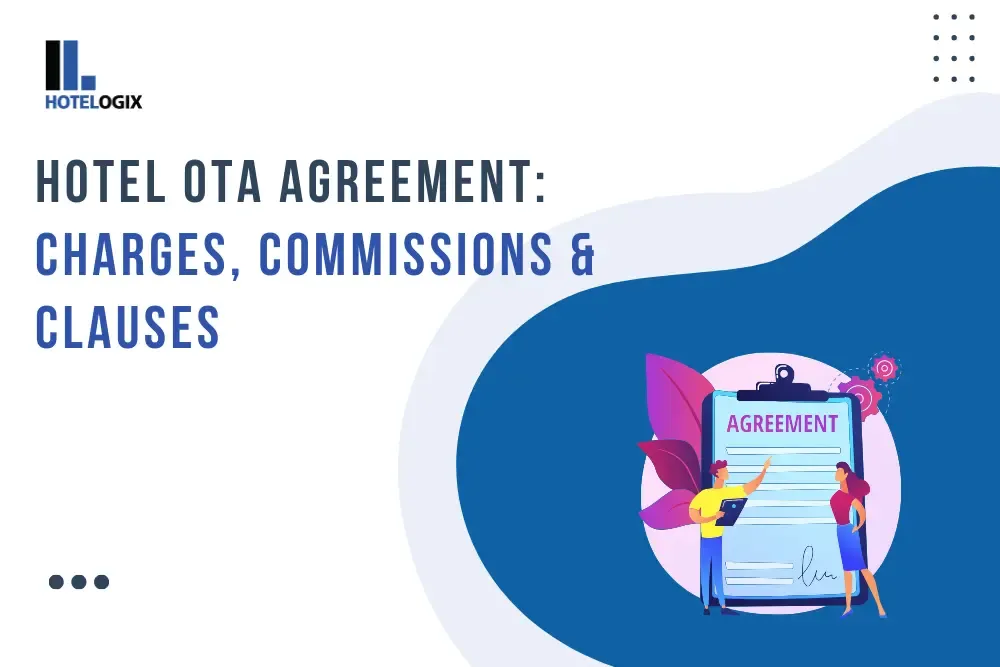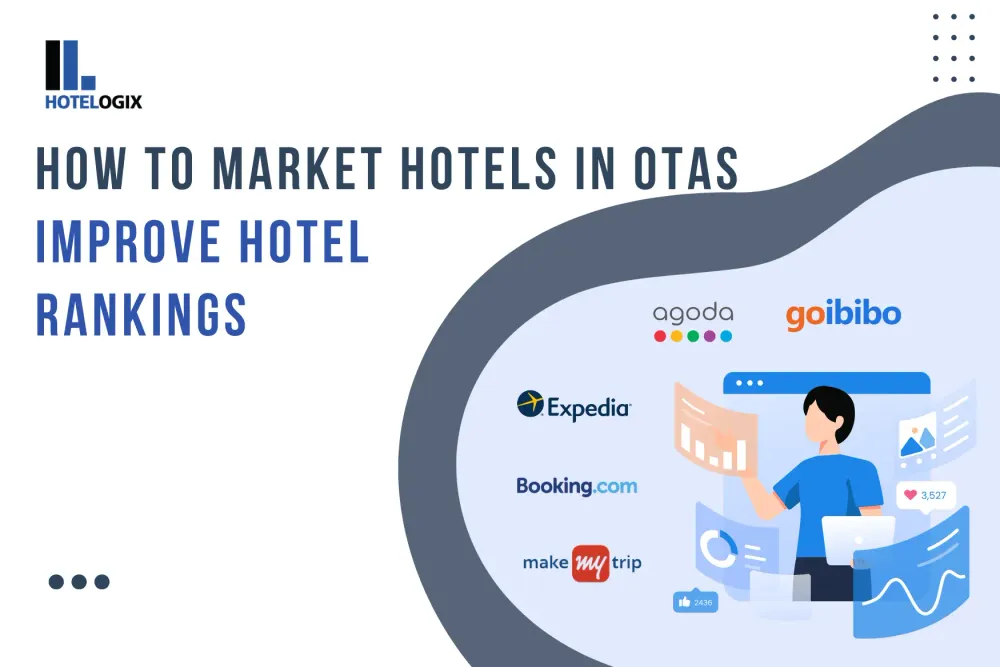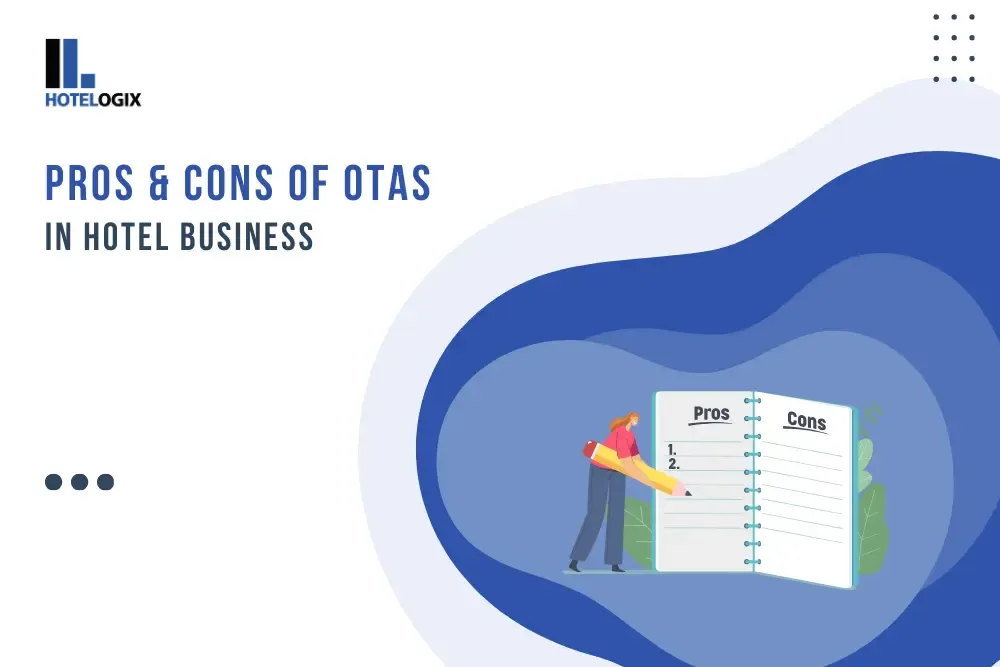Online Travel Agencies (OTAs) help hotels secure more bookings by increasing their visibility globally. For small and medium-sized hotels, OTAs are crucial in reaching new guests and expanding their market. Popular OTAs like Booking.com, Expedia, Makemytrip and Agoda are common platforms that many hotels use to grow.
However, partnering with OTAs involves specific agreements. These agreements cover rates, charges, and commissions. Understanding these details helps hotels make better decisions and avoid unexpected costs.
Key Factors Influencing OTA Agreements
Hotels and OTAs agree on rates before rooms are listed. Several factors affect the rates set on OTA platforms:
- Market Demand: When demand is high, rates go up. During low seasons, rates are often lower to attract guests.
- Competition: Hotels look at what their competitors are charging. This helps them set competitive rates.
- Room Types: Premium rooms are generally more expensive, while basic rooms are offered at lower prices.
- Rate Parity: OTAs usually require that the rates on their platform match those on the hotel’s website. This means no cheaper deals for direct bookings unless negotiated.
- Best Rate Guarantees: Hotels may want to offer the best rates to direct bookers, but OTAs often limit how flexible they can be with this practice.
OTA Charges: Typical Costs Imposed by OTAs to Hotels
Hotels face various charges when working with OTAs. These are important to understand because they impact overall revenue:
- Booking Fees: Every time a room is booked through an OTA, the hotel pays a fee for that reservation.
- Marketing Fees: OTAs often charge hotels extra if they want better visibility or preferred listings on the platform.
- Platform Fees: Smaller hotels may need to pay for the technology or platform usage provided by the OTA.
OTA Commissions: How OTA Rates Affect Hotel Profits
OTAs take a percentage of every booking as a commission, which generally falls between 10% and 30%. The exact percentage depends on several factors, including the OTA used and the hotel’s location or size.
Impact on Profits: High commissions reduce a hotel’s profit margin. For small hotels, this can be particularly challenging. It’s important to balance OTA bookings with direct bookings to maintain profitability.
Pros and Cons of OTA Agreements
Using OTAs comes with clear benefits and drawbacks:
- Pros:
- More Visibility: OTAs give hotels access to a broader audience, leading to more bookings.
- Easy to Use: OTA platforms are straightforward and user-friendly, making them accessible to both hoteliers and guests.
- Low Upfront Costs: Hotels only pay OTAs after bookings are confirmed, making it a low-risk strategy.
- Cons:
- High Commissions: OTAs take a significant portion of each booking as their fee.
- Rate Parity Rules: OTAs often limit a hotel’s ability to offer lower prices directly to guests, reducing flexibility.
- Less Control: OTAs often act as the main point of contact, meaning hotels lose direct interaction with their guests.
Tips for Negotiating OTA Agreements
Hoteliers can take steps to negotiate better terms in their OTA agreements:
- Negotiate Lower Commissions: Hotels in high demand can often secure lower commission rates from OTAs.
- Avoid Rate Parity: Hotels should aim for flexibility in their agreements to offer special deals to direct bookers.
- Boost Visibility Without Extra Fees: Some hotels negotiate for better placement on OTA search results without paying additional marketing fees.
Direct Bookings vs. OTA Bookings
There are key differences between direct and OTA bookings that hotels should consider:
- Lower Costs on Direct Bookings: Direct bookings don’t require paying OTA commissions, which means more revenue for the hotel.
- Better Guest Relationships: Direct bookings allow hotels to build stronger connections with their guests, leading to better service and loyalty.
- OTA Reach: While direct bookings are preferred for profitability, OTAs are helpful in reaching a larger or new audience. The key is balancing both.
Key Clauses to Watch for in OTA Agreements
When signing an OTA agreement, hotels should pay close attention to these clauses:
- Rate Parity: OTAs may demand that hotels offer the same rates on the OTA as they do on their own websites. Hotels should try to negotiate flexibility on this point.
- Commission Terms: It’s important to fully understand the commission structure and any additional fees imposed by the OTA.
- Contract Length: Shorter contracts allow hotels to renegotiate terms as the business grows or the market changes.
- Termination Clauses: Hotels should ensure they know how to exit an agreement if the OTA relationship isn’t working out. Some contracts renew automatically, so these terms should be checked carefully.
OTA agreements are essential for expanding a hotel’s reach but come with costs. By understanding the details around rates, charges, and commissions, hotels can make smarter decisions and protect their profit margins. Regularly reviewing contracts, negotiating favorable terms, and balancing OTA and direct bookings will help hoteliers grow their business while keeping their revenue healthy.





